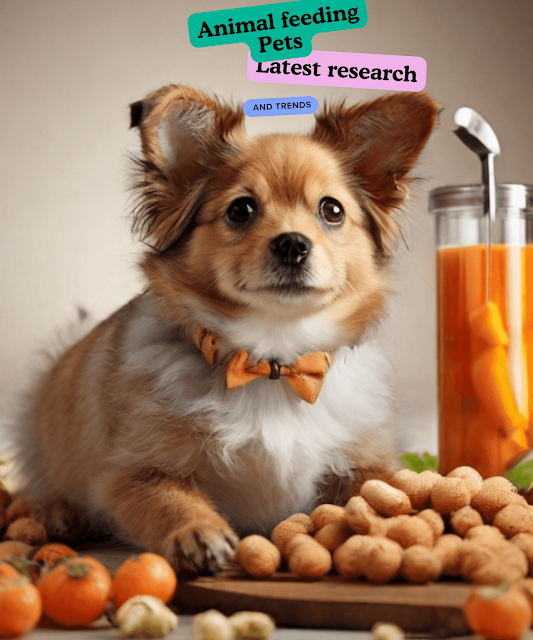Alternate topic: “The Science of Pet Nutrition: Understanding the Latest Research and Trends.”
Pet Nutrition Facts
When it comes to our pets, one important aspect that often gets overlooked is nutrition. Just like humans, pets require a balanced diet to thrive and lead a healthy life. In recent years, there has been a surge of interest in the science of pet nutrition, leading to new research and trends in the field. This article aims to provide an overview of the latest findings and offer tips for maintaining optimal pet nutrition.
Before diving into the details, it's essential to understand that a pet's nutritional needs can vary based on factors such as age, breed, size, and overall health condition. It's always a good idea to consult with a veterinarian to determine the most appropriate diet for your pet.
Healthy Pet Nutrition Tips
Choose High-Quality Food: The quality of the food you feed your pet is crucial. Look for pet food brands that use real meat as the main ingredient and avoid those that contain fillers or artificial additives. Reading labels and doing research can help you make informed choices.
Provide a Balanced Diet: Just like humans, pets require a balanced diet that includes a mix of proteins, carbohydrates, fats, vitamins, and minerals. Make sure to provide a variety of foods that meet these nutritional needs.
Portion Control: Obesity is a common health issue among pets. It's important to feed them the right amount of food, considering their age, activity level, and body condition. Overfeeding can lead to weight gain and associated health problems.
Hydration is Key: Make sure your pet has access to clean and fresh water at all times. Proper hydration is essential for their overall well-being.
Avoid Harmful Foods: Some human foods can be toxic to pets. Avoid feeding them chocolate, grapes, raisins, onions, garlic, and anything containing caffeine or xylitol.
Regular Exercise: Along with a nutritious diet, regular exercise is essential for maintaining your pet's health. It helps them burn calories and stay fit.
Monitor Weight and Health: Keep an eye on your pet's weight and overall health. Regular visits to the veterinarian will allow for early detection of any nutritional deficiencies or health issues.
Nutritional Needs of Pets
Proteins: Protein is the building block of a pet's diet. It is essential for muscle development, repair, and overall growth. Look for high-quality proteins such as chicken, turkey, fish, and beef in your pet's food.
Carbohydrates: Carbohydrates provide energy to pets. Opt for whole grains like brown rice, oats, and barley as a source of carbohydrates in their diet.
Fats: Healthy fats are crucial for pets as they provide energy, aid in nutrient absorption, and promote a shiny coat and healthy skin. Look for omega-3 and omega-6 fatty acids in their food.
Vitamins and Minerals: Pets require a range of vitamins and minerals for overall well-being. These can be obtained from fruits, vegetables, and specially formulated pet supplements.
Age-specific Nutritional Needs: Puppies, adult dogs, and senior dogs have different nutritional requirements. Make sure to choose food that is formulated specifically for your pet's life stage.
Breed-specific Considerations: Certain breeds may have unique nutritional needs. For example, large breed dogs may require specific nutrients to support their bone and joint health. Do some research on your pet's breed to ensure their nutritional needs are met.
Special Dietary Considerations: Some pets have medical conditions that require specialized diets. For example, pets with kidney disease may require a low-protein diet. It's essential to work closely with your veterinarian to create the right diet plan for your pet's specific needs.
By understanding the science of pet nutrition and implementing healthy feeding practices, you can ensure that your furry friend stays healthy and happy. Remember, just like with any diet, consistency is key. Stick to a well-balanced feeding routine and make adjustments as needed based on your pet's individual needs. Your pet will thank you for taking care of their nutritional well-being.

